Established in 1929, Kakujoro is a beautiful ryokan (traditional Japanese inn) located in Tahara City, Aichi Prefecture, about two hours from Nagoya Station by car. Although times are changing, generally, the farther you are from any city center in Japan, the narrower the meal choices get for people like me who have a certain diet. I have been mostly vegan (vegetarian on occasion) for over five years now, and I have experienced the challenges of finding proper, satisfying meals when traveling around the Japanese countryside. So, naturally, I was slightly nervous about how my food situation would turn out during my two-night, three-day stay at Kakujoro.
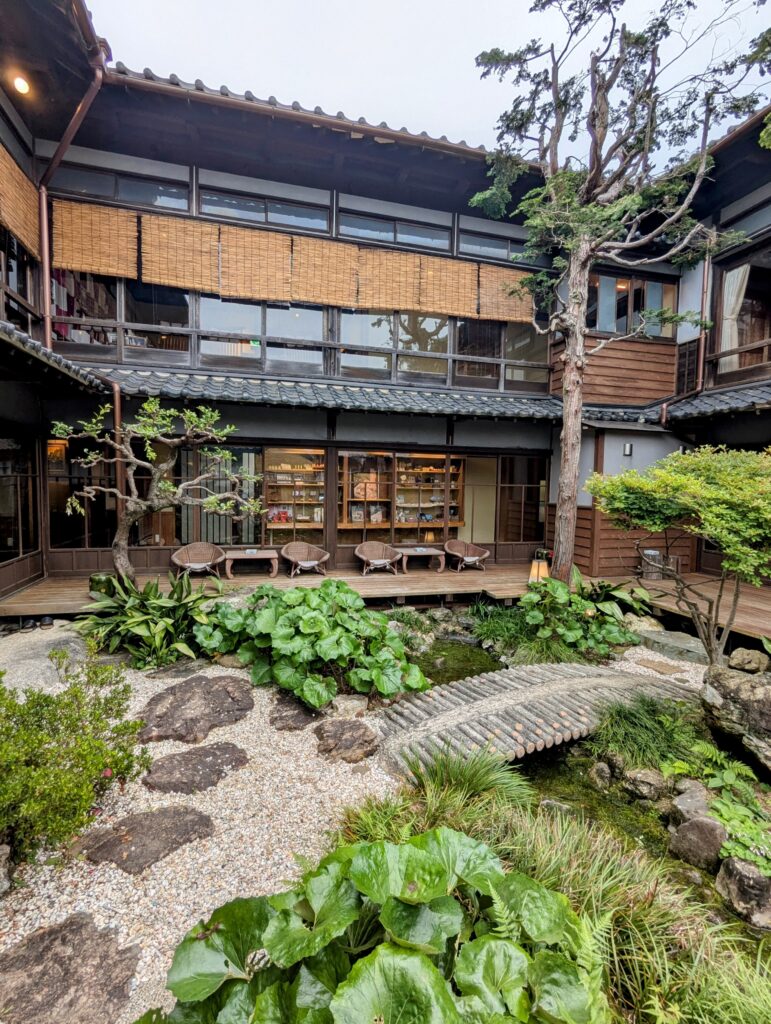
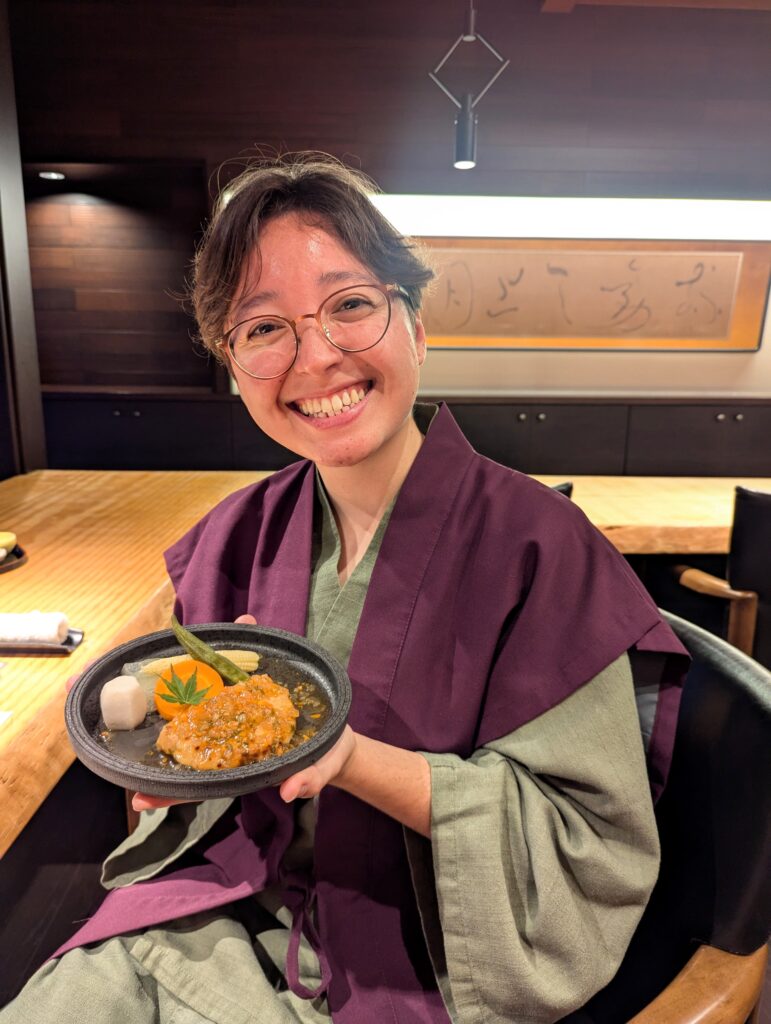
The fact that Kakujoro is a traditional ryokan that has been around for nearly 100 years certainly added another layer of curiosity in me (and a sprinkle of worry). Ryokan typically serve kaiseki cuisine, which is a multi-course feast with numerous small dishes that incorporate local, seasonal ingredients.
Given the complexity of the preparation and the signature dishes that often highlight some sort of premium meat or fish, as well as recipes that have often been followed for decades (down to the usually fish-based dashi broth), I understand that it is no easy task for ryokan chefs to reconfigure the entire course to fit the needs of someone like me who makes up the minority of the customer base.
But Kakujoro absolutely blew me away. Now, that is not to say they served the best vegan food in the world, but considering their deep history as a traditional ryokan, and especially their greatest culinary pride being fresh seafood (particularly torafugu in winter) caught around the nearby Atsumi Peninsula, I was duly impressed.
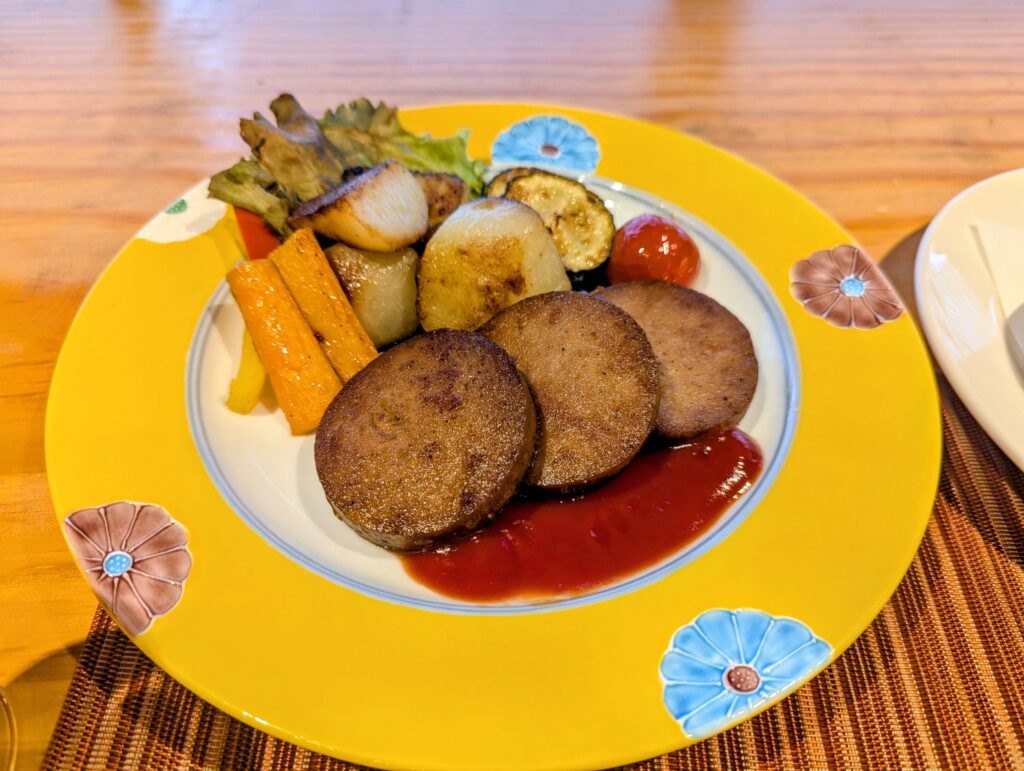
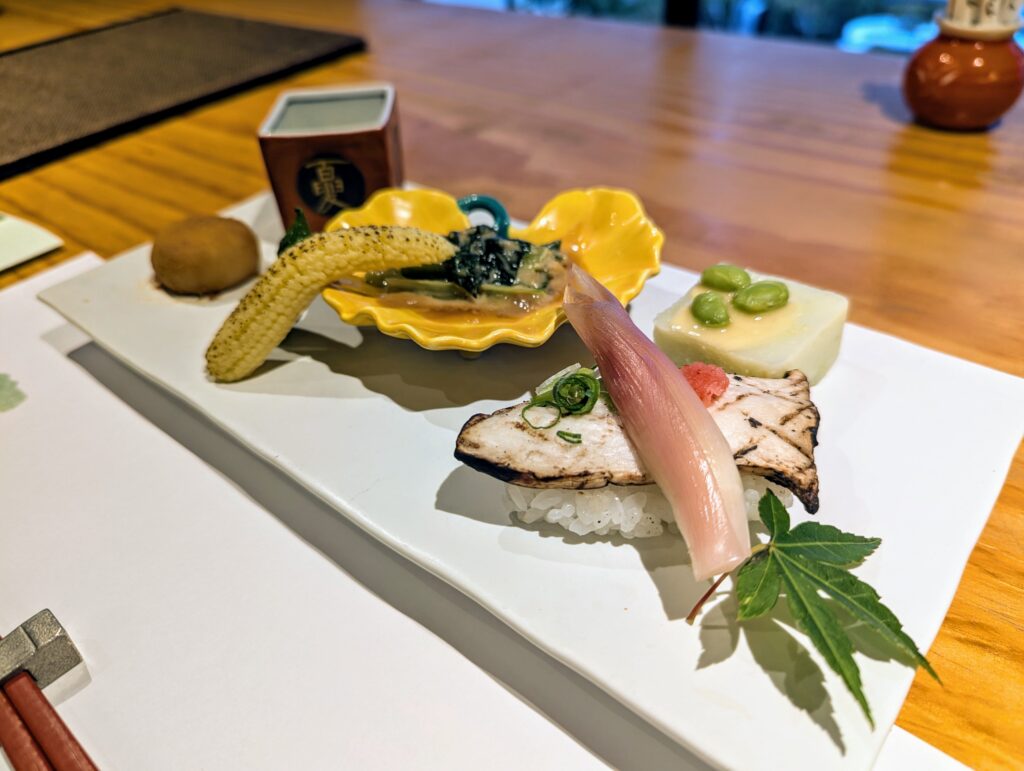
Two aspects particularly stood out to me.
First was the warm welcome from every single staff member, who was eager to ensure I had as much surprise and enjoyment with my food as anybody else. In some ryokans I’ve visited in the past, subtle looks and tones from staff have made me feel bad for requesting my meal preferences. It’s never a direct, overt thing, but a sense that I am not given the same welcome or thought in my meals as everybody else.
But at Kakujoro, from my very first meal, the staff came over to ensure that everything was indeed vegan, and she even brought over the halal soy sauce bottle the chef had used to further reassure me. It was such a kind gesture, and she did it all with a big, warm smile that made me feel so included.
The second aspect I thought was really cool was that the chef had constructed several elements of my kaiseki course to match my mother’s, who had the standard non-vegan meal. For example, at breakfast, I had a small nabe (hot pot) like the one she was having. During dinner, while my mom was enjoying fresh sashimi, I had slices of seaweed konnyaku, which is a nice vegan alternative to fish, plus various sauces for added flavor.
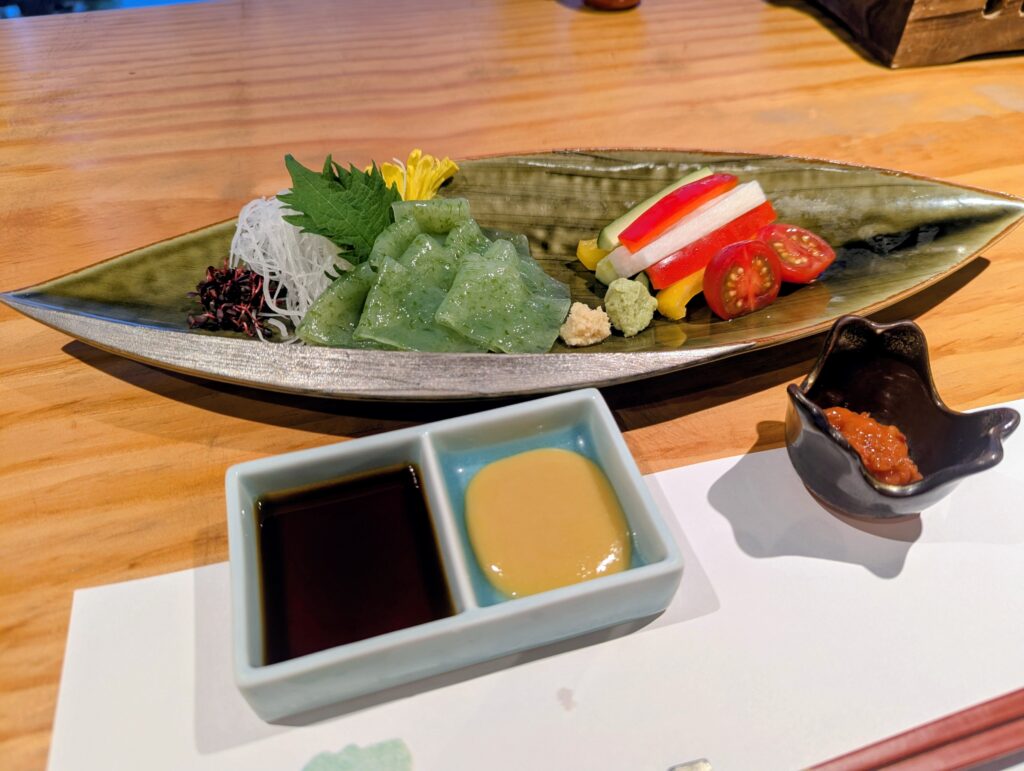
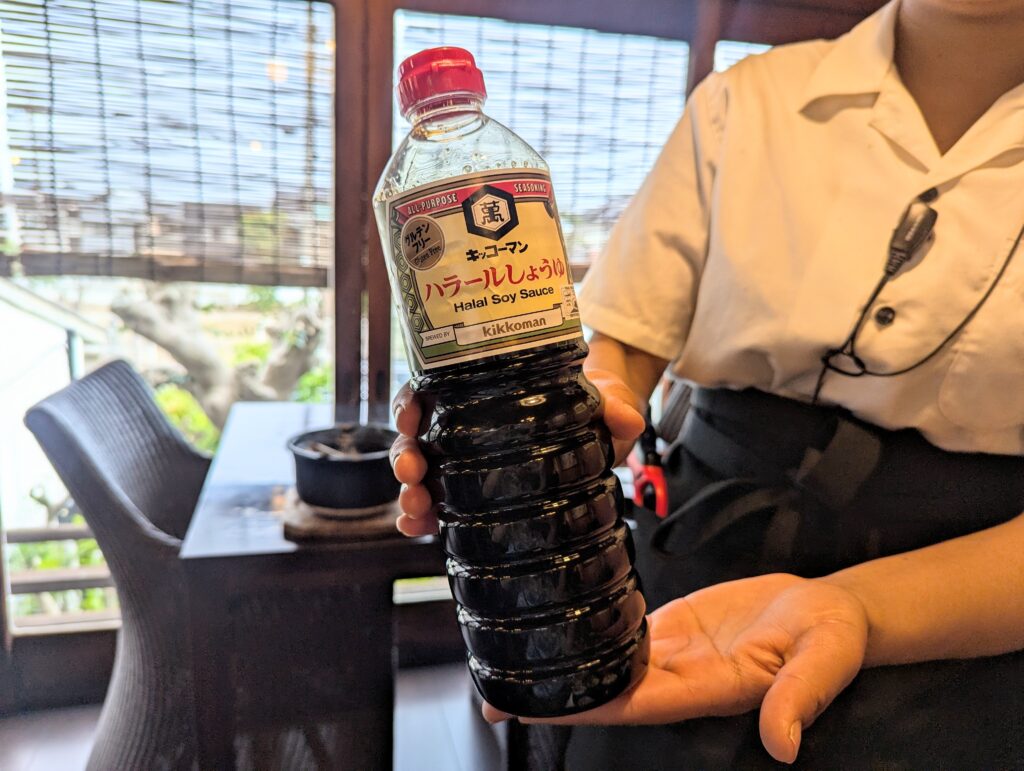
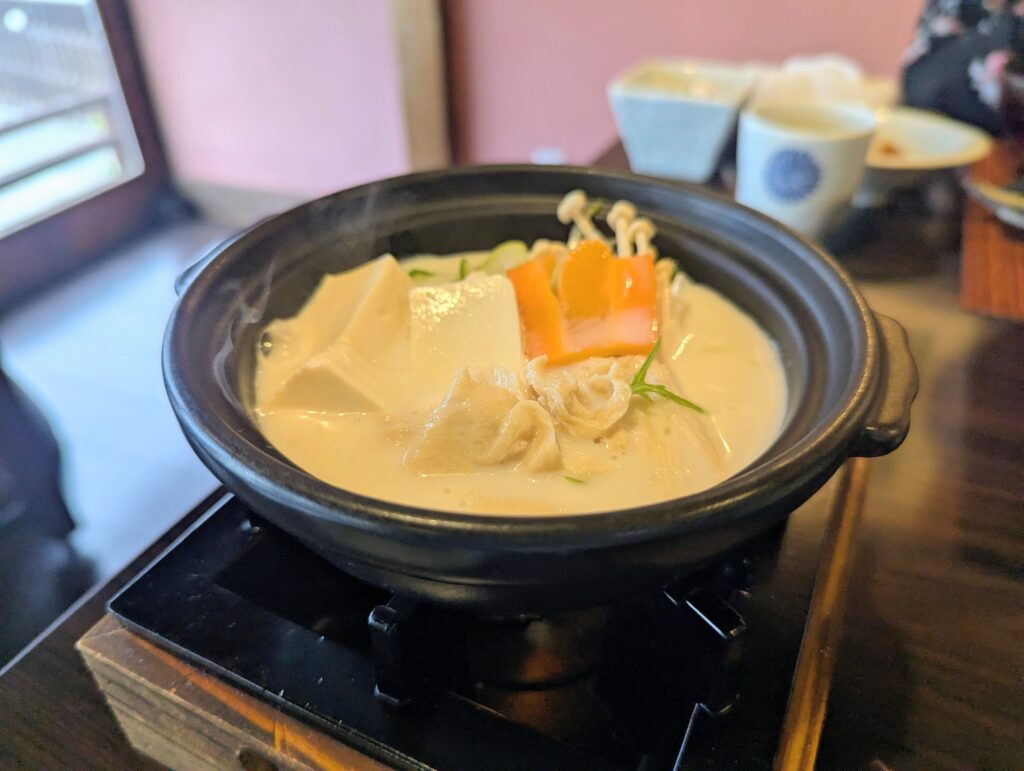
This mirroring of my vegan dishes to my mother’s non-vegan dishes meant a lot to me because it touched on a part of being vegan that can feel quite isolating at times when I’m the only one eating something different from everyone else. Although I love being vegan/vegetarian and wouldn’t do it any other way, I do miss the part of sharing the same foods with each other and savoring them together. Although my mother and I weren’t technically eating the same things, there was a closeness I felt with her dining experience that I was so grateful for.
It was after our final meal at Kakujoro that one of the friendly staff revealed that this was the first time they had ever served vegan meals at Kakujoro. I am pretty sure I gave out a high-pitched “Eeeeeeeh!” in disbelief, which is the Japanese version of “whaaaatt” or “no waaaaayy.” It was truly hard to believe because, as I mentioned earlier, the intuitiveness, thoughtfulness, and effortlessness with which the meals beautifully (and deliciously) mirrored the standard meat course, along with the warm welcome of staff who showed no sense of fuss for accommodating my request, were top-tier.
There is always room to improve, but if this is what the Kakujoro chefs could accomplish on their first try, I was ecstatic to imagine all of the vegan possibilities they could achieve moving forward. It all starts with the willingness to try and the determination to give it one’s absolute best, and in that regard, Kakujoro excelled with flying colors.
